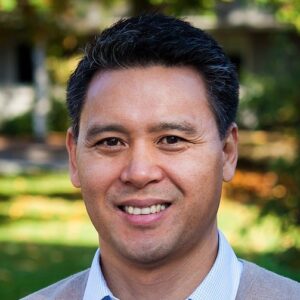
An “A” Teacher
I think we all have met them at one point in our educational lives. I call them “A” teachers because they hold certain qualities as educators. I saw it in Mrs. Akiyama, my second-grade teacher who, by some stroke of good fortune, I had as my third-grade teacher too. You could tell there was something different about her in the way she conducted class. Sure, I wouldn’t have articulated it then as I do now some fifty-eleven years later, but I sensed, even at that young age, a deep difference in how she held herself, formed her craft, and cared for her students. She exemplified the qualities I call the four “A’s” and I am convinced of their transferability and value for any field.
Available: Do you make yourself available? We often hear people say they have availability on “these days” of the week and “at these times.” They put it on their syllabi; they tell person X to get in touch with their administrative assistant to set up a time to meet. Their schedule, my schedule, says that I have time to see you in these specific moments. Given the increasing responsibilities faculty persons wear now, a schedule perhaps is more gift than curse. It can keep us sane or at least ordered enough to move along. Of course, our schedule can feel like a curse in that it reminds us of how little time in our schedule we actually have.
Approachable: Can I approach you? Availability was the bare minimum of what I saw in Mrs. Akiyama. We may have an open schedule, but what vibe do we give our students that communicates that we’re approachable enough that they would want to schedule a time to meet? The academy is filled with introverts. I’m one of them. And introverts are sometimes the best at exuding an approachable vibe. Approachability is not about availability. It is about being truly comfortable enough with oneself, with others, and with the vocation of teaching that you can build a deep level of trust with students who can tell that you are for, and not against, their growth and wellbeing. We can be approachable even if our availability is limited.
Accessible: Can you access yourself? Repeat with me, “I’m not a therapist,” “I’m not a therapist,” (unless of course, you are a therapist). But for the sake of this blog, I’m going to assume that most of us in theological higher education, as smart and as well-read as we are, (even if we like to dabble in junior psychology,) are not licensed therapists. I am not asking whether a teacher can psychoanalyze a student’s inner life. Rather, I am asking whether you, the person of the teacher, can access your own self? Do you know your limitations, your boundaries, your triggers, your personality, your emotions, how to self-regulate? Notice I did not ask if you know your theories, your interlocutors, or your content. This is about knowing yourself and in doing so, maybe knowing a little more about how you show up with others and in your teaching. Parker Palmer offers teachers good reflection material to help us do this work (start with The Courage to Teach: Exploring the Inner Landscape of a Teacher’s Life). Therapy is also a great way to get a better sense of one’s emotional landscape. I find that teachers who can access their own lives more readily seem less defensive and better able to handle imperfection in themselves and in their students. I think others sense this in them even if they do not know the terminology.
Attunable: Are you attuned to others’ lives? Attunement is the idea that one (e.g., a parent) is keenly aware of another’s (e.g., a child) needs. This awareness goes beyond an apparent presenting need (e.g., a baby crying for food) to include those needs that a person has not yet articulated for themselves. Emphasizing again that although teachers are not therapists, really good teachers have a sense that the person in front of them is a ball of complex realities and experiences. They are attuned to the learning need for any given student. Don’t mistake this attunement for having poor boundaries or not offering feedback on poor performance. Somehow, attunable teachers know that there are many more things worth exploring about a student than gauging the student’s interest in their class or subject matter.
I imagine you have had these kinds of teachers sometime in your educational life and I hope we can fashion some of these aspects in our own lives as teachers.
Leave a Reply